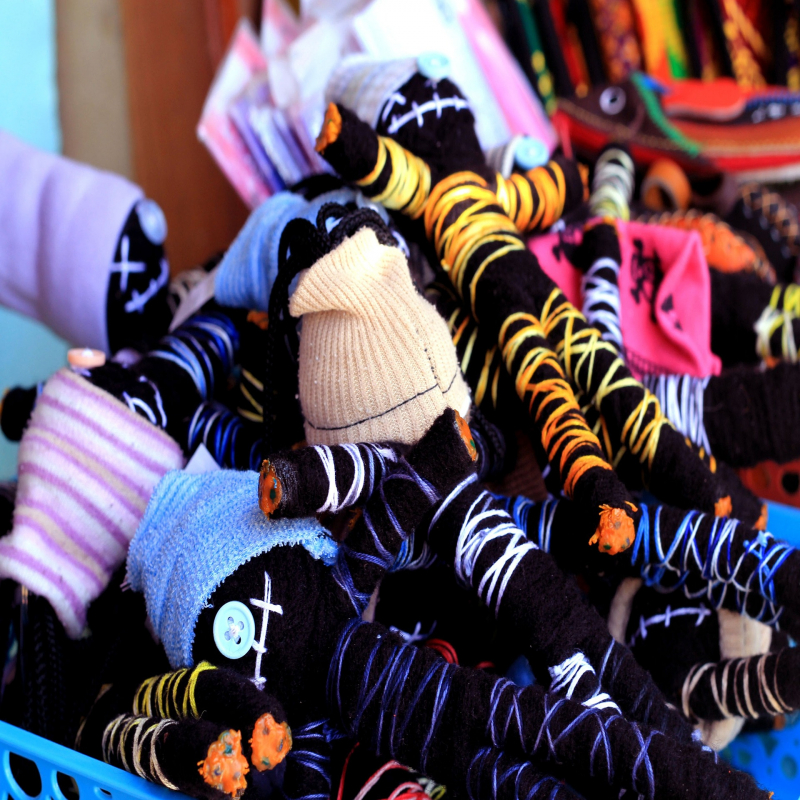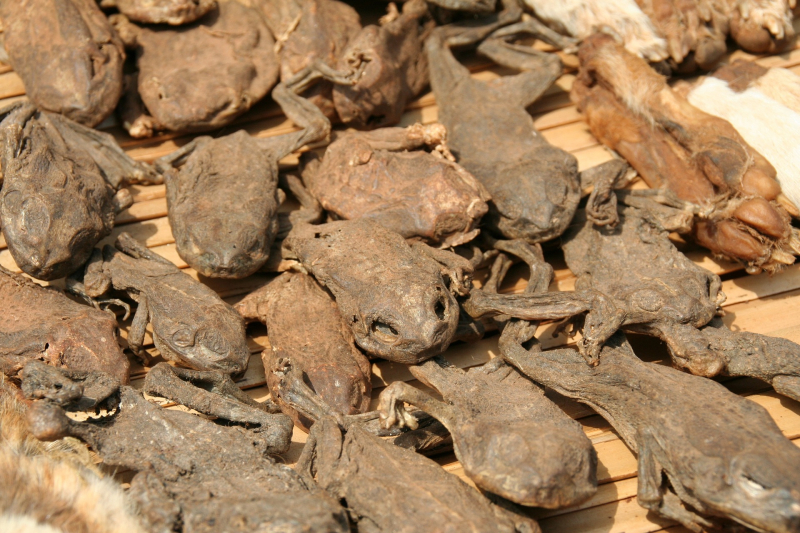Origin of Vodou

Vodou is fundamentally a monotheistic religion that recognizes a single and supreme spiritual being or God known as Mawu-Lisa among the Fon, Olorun among the Yoruba, and Bondye or Gran Met in Haiti. Vodou is a practice that is largely practiced in Haiti, New Orleans, and other Caribbean regions, and it serves as a source of national identity and pride.
Vodou is also known as Vodun, Voodoo, Vodoun, and several other names. The Haitian Creole word Vodou is derived from Vodun, a word from modern-day Benin's Fon language that signifies enigmatic, invisible powers that intervene in human events. It is a syncretic religion that combines Roman Catholicism and traditional African religion, particularly that of the Dahomey region of West Africa (the modern-day nation of Benin).
If a Vodou practitioner claims to be Christian, he usually claims to be a Catholic Christian. Many Vodou practitioners identify as Catholics as well. Some people believe that saints and spirits are the same thing. Others continue to believe that Catholic adornments are purely for show.
Vodou is a sophisticated system of knowledge that has nothing to do with simplistic and incorrect imagery such as inserting pins into dolls, laying a hex on an adversary, or turning innocents into zombies. It is a structured kind of communal support that gives meaning to the human experience in relation to the natural and supernatural elements of the universe.
Vodou has been heavily connected with devil worship, torture, cannibalism, and wicked magical workings in popular culture. This is primarily due to Hollywood as well as historical misrepresentations and misconceptions of the faith.
The seeds of these fallacies were planted much earlier than anything seen in the movies. A well-known episode in 1791 at Bois Caiman was a watershed moment in Haitian slave insurrection. The precise circumstances and intent are a topic of historical controversy.
Witnesses saw a Vodou ceremony and assumed the participants were striking some sort of agreement with the Devil to thwart their captors. Some argue that the deal has cursed the Haitian people in perpetuity, even as recently as 2010, following the horrific earthquake.
Slavery was very harsh and savage in Vodou-influenced countries such as Haiti, and slave revolts were equally violent. All of this caused European settlers to equate the faith with violence, and it also contributed to the spread of many false myths about Vodouisants.






